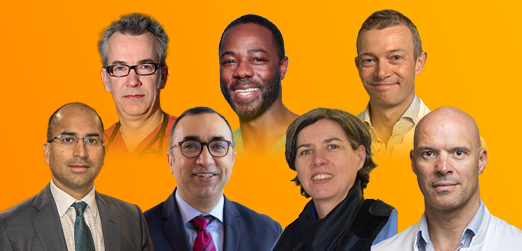- Home
- Rhythm Interventions Online 2021 - Live Case: Pulsed Field Ablation to Isolate the Pulmonary Veins
Rhythm Interventions Online 2021 - Live Case: Pulsed Field Ablation to Isolate the Pulmonary Veins
- Intervention
Available Credit:
- 1.00
Course Published On:
Course Expiry Date:

Overview
Building on the outstanding success of 2020’s inaugural event, Rhythm Interventions Online (RIO) 2021 will deliver the highest quality CME-accredited learning over three days.
With an interactive programme that will reflect the very latest tips, tricks and technologies, the aim of RIO 2021 is, conversely, one of continuity: the continue to provide you, the healthcare professional, with stimulating virtual sessions to educate, challenge, and best support optimal outcomes in patient care.
Central to RIO’s philosophy is for all sessions to again be free-to-access, providing a platform for the widest dissemination of live case procedures, expert opinions and best-in-class presentations and discussion.
Disclosure
In compliance with EBAC / EACCME guidelines, all speakers/chairpersons participating in this programme have disclosed or indicated potential conflicts of interest which might cause a bias in the presentations.
The Organising Committee/Course Director is responsible for ensuring that all potential conflicts of interest relevant to the event are declared to the audience prior to the CME activities.
Terms & Conditions
Radcliffe Education requires contributors to our CME programmes to disclose any relevant financial relationships that have occurred within the past 12 months that could create a conflict of interest. These will be identified in the faculty section if applicable.
The session 'Rhythm Interventions Online 2021 - Live Case: Pulsed Field Ablation to Isolate the Pulmonary Veins' is accredited by the European Board for Accreditation in Cardiology (EBAC) for 1 hour of external CME credits.
Each participant should claim only those hours of credit that have actually been spent in the educational activity. EBAC works according to the quality standards of the European Accreditation Council for Continuing Medical Education (EACCME), which is an institution of the European Union of Medical Specialists (UEMS).
Through an agreement between the European Board for Accreditation in Cardiology and the American Medical Association, physicians may convert EBAC External CME credits to AMA PRA Category 1 Credits™. Information on the process to convert EBAC credit to AMA credit can be found on the AMA website.
Instructions to Participants
There is no fee for taking part in this online learning activity.
Activities are designed to be completed within 60 minutes and must be completed by the registered user. Physicians should only claim credits for time spent on the activity. To successfully earn credit, participants must complete the activity in full in the indicated time frame.
To complete the course and claim certification participants must:
- Read the course outline information supplied and complete pre-test questions if supplied prior to starting the activity. Users must read and study the activity in its entirety before completing the post-test questions.
- Your results will be automatically saved and if a pass score is achieved (where applicable), you may be eligible to claim credit for the activity and receive a certificate of completion.
Target Audience
- Electrophysiologists
- Arrhythmologists
- General Cardiologists
- Cardiac Catheterization Technologists and Technicians
- Physiologists
- Device Implanting Specialists
Learning Objectives
The overall programme, Rhythm Interventions Online 2021, endeavours to best address the following learning objectives:
- Discuss the merits of using ablation in the day surgery setting and as a first-line treatment for atrial fibrillation
- Summarise recent clinical data on emerging ablative techniques for atrial fibrillation and ventricular tachycardia (VT)
- Recall how to carry out ablative procedures including fluoro-free ablation, high power ablation, ablation of structural heart VT, convergent ablation and ablation in atrial tachycardia
- Recall how to carry out leadless pacing and His bundle pacing for cardiac synchrony
Module |
Title |
Duration |
Speakers |
|---|---|---|---|
| Live Case & Discussion | Pulsed Field Ablation to Isolate the Pulmonary Veins | 1 hour | Boris Schmidt (CCB Markus Krankenhaus, Frankfurt, DE) Shaojie Chen (CCB Markus Krankenhaus, Frankfurt, DE) |
Pulsed Field Ablation to Isolate the Pulmonary Veins
Duration: 1 hour
Speakers: Boris Schmidt (CCB Markus Krankenhaus, Frankfurt, DE) Shaojie Chen (CCB Markus Krankenhaus, Frankfurt, DE)
Chair
Panelist
Operator















